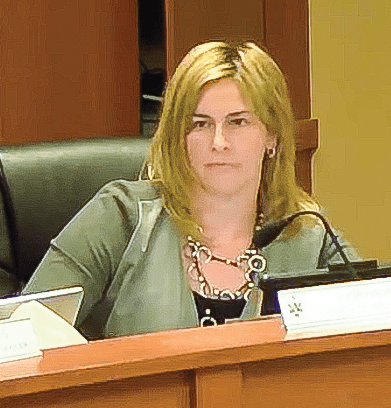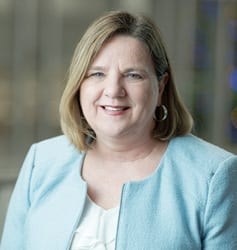At the last two Pelham Town Council meetings, Ward 3 Councillor Lisa Haun has questioned Town staff on how the municipality derives payment from real estate developers, expressing concern that the Town may not be doing so with sufficient speed. At last Monday’s council meeting, Director of Planning and Development, Barb Wiens, agreed to prepare a report for council to address Haun’s concerns. That report may end up looking a lot like this overview.

Based on research and reporting the Voice has done over the past four years, particularly related to the Town’s East Fonthill development, the municipality already appears to be charging developers the maximum amounts permitted, and receiving these funds—or guarantees—before construction begins.
Last week, the Voice reached out for an update from Wiens, who confirmed that at the time of building permit issuance, the builder pays all building permit fees, cash-in-lieu of parkland dedication fees, if applicable, and Town, Regional and Catholic School Board development charge fees.
When a developer receives approval for a development, such as a plan of subdivision, the developer pays for all the costs associated with building the new roads, installing all the infrastructure—water, sanitary and storm sewer systems, street lighting, gas lines, telephone, cable, sidewalks, street trees, street signage—for the subdivision.

The Town does not pay for any of these works, Wiens said. The Town receives from the developer financial security, in the form of cash deposits and/or letters of credit from the developer’s financial institution, for all of these works at the time a subdivision is granted its final approval. The Town does not allow any construction of works to commence until it has received the financial securities from the developer. The securities are to ensure that all these works get installed in accordance with the Town standards. The securities are returned to the developer after the works have been installed and after an agreed-upon maintenance period.
Wiens said that Town engineering staff inspect the new works to ensure that they are installed in accordance with Town standards prior to releasing any securities back to the developer. If there are deficiencies, the developer must repair or remediate the deficiency. If the developer does not, the Town can draw on the developer’s securities and undertake to do the repair or remediation of the deficiency itself.
The developer also pays an administration fee, which is to cover Town staff costs to administer the subdivision agreement. The developer pays for all the costs to develop a subdivision up front, and the Town takes ownership and maintenance of these services after the maintenance period has expired and Town staff are satisfied that all the services and roadway have been installed and constructed in accordance with Town standards.
Development charge fees (commonly referred to as “DCs,” or the mildly redundant “DC charges”) are used to pay for growth-related infrastructure—recreation and fire service improvements to existing services—that are required to accommodate the new growth.
 For example, said Wiens, if an existing water main needs to be increased in size to provide the new development with the same level of service that the existing community receives, development charges cover that portion of the costs to increase the size of the water main. Thus, if a six-inch water main needs to be increased to eight inches so that a new subdivision has the appropriate water supply to service the development, development charges cover the difference in cost between the six-inch water main to the eight-inch water main. In this example, the Town would be responsible for the costs related to replacing six-inch portion of the water main, since this services the existing development, while the fees collected through development charges would pay for the growth-related costs only, not existing infrastructure replacement.
For example, said Wiens, if an existing water main needs to be increased in size to provide the new development with the same level of service that the existing community receives, development charges cover that portion of the costs to increase the size of the water main. Thus, if a six-inch water main needs to be increased to eight inches so that a new subdivision has the appropriate water supply to service the development, development charges cover the difference in cost between the six-inch water main to the eight-inch water main. In this example, the Town would be responsible for the costs related to replacing six-inch portion of the water main, since this services the existing development, while the fees collected through development charges would pay for the growth-related costs only, not existing infrastructure replacement.
Every five years the development charges bylaw is reviewed, said Wiens, and updated to reflect current growth development trends, growth predictions and services required to service the new growth, so that the fees collected through development charges are as realistic as possible. On an annual basis the development charges are increased based on the construction price index.
Meanwhile, the Region has its own development charges bylaw, which deals with growth-related costs for Regional services, while the Catholic School Board also has its own development charges bylaw, addressing growth-related costs associated with schools.
Pelham—like all local municipalities in the Region—collects the Regional development charges on behalf of the Region and the Catholic School Board at building permit stage. On a quarterly basis, the Town pays these charges to the Region and the Catholic School Board that have been collected on their behalf.


